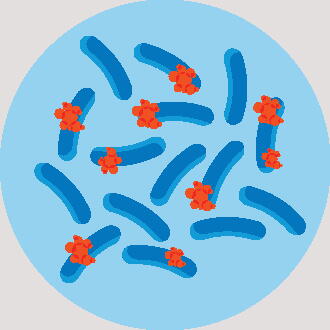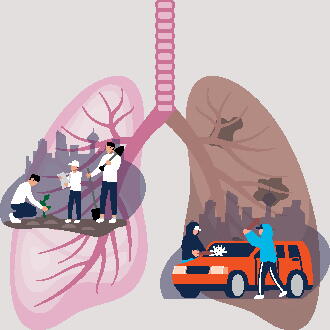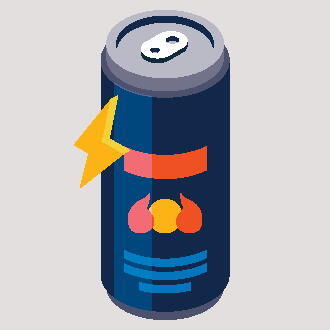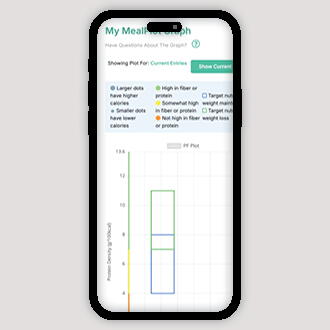
We advance health through transformational discoveries across disciplines, from Alzheimer’s to zinc digestibility. These impacts are made possible through public and private investments, legislator support, multi-institutional partnerships, and the dedication of faculty and student scholars.
Below, we showcase recent examples of our most impactful research in the area of health and wellness. You can also view and download a pdf version and subscribe to one of our ACES e-newsletters to stay abreast of new developments in ACES research.
Discover Our Health & Wellness Research
Nanoplastics in the Environment Turn E. coli Into a Bigger Villain

Food scientists at Illinois have discovered that nanoplastics might interact with foodborne pathogens, making bacteria more harmful to humans. The researchers found that the positively-charged surface of nanoplastics increased physiological stress in an E. coli strain implicated in many foodborne illness outbreaks. Just as a stressed dog is more likely to bite, the stressed bacteria became more virulent, pumping out more Shiga-like toxin, the chemical that causes illness in humans. Importantly, the effect was seen not only in free-floating bacteria but also in biofilms, the protective bacterial communities that often cling to surfaces in food processing environments. The researchers suggest that interactions between food packaging materials and pathogenic bacteria could also influence antibiotic resistance, raising new questions about the hidden health risks of plastics in our food system.
ACES researchers:
Pratik Banerjee, Food Science and Human Nutrition and Illinois Extension
Jayashree Nath, Food Science and Human Nutrition
Goutam Banerjee, Food Science and Human Nutrition
Jayita De, Food Science and Human Nutrition
Noella Dsouza, Food Science and Human Nutrition
Funding: This research was supported in part by a USDA National Institute of Food and Agriculture grant [# ILLU-698-981].
Related news stories:
Could nanoplastics in the environment turn E. coli into a bigger villain?
Could microplastics in soil introduce drug-resistant superbugs to the food supply?
Refrigerate lettuce to reduce risk of E. coli contamination, researchers say
Study Links Neighborhood Violence, Lung Cancer Progression

U. of I. food scientist and cancer researcher Zeynep Madak-Erdogan led a study that linked neighborhood violence to lung cancer. She and her team discovered that stress responses differ between those living in neighborhoods with higher and lower levels of violent crime, and between cancerous and healthy tissues in the same individuals. The analysis focused on glucocorticoids, a group of steroid hormones like cortisol, and found that they were more active in cancerous tissues and in people who lived in high-crime neighborhoods. The study was designed to address the higher incidence of lung cancer in Black men, a disparity that persists even though, on average, Black men smoke less and start smoking later in life than their white counterparts.
ACES researchers:
Zeynep Madak-Erdogan, Food Science and Human Nutrition
Hannah Heath, Food Science and Human Nutrition
Funding: The National Institute of Minority Health and Health Disparities at the National Institutes of Health supported this research.
Related news stories:
Study links neighborhood violence, lung cancer progression
ER-positive breast cancer presents differing metabolic signatures in African American, white women
PFAS exposure, high-fat diet drive prostate cells’ metabolism into pro-cancer state
Zeynep Madak Erdogan receives American Association for Cancer Research award
Policy Preferences for Limiting Children’s Access to Energy Drinks

Just as sales of energy drinks have surged, so has their caffeine content, elevating concerns about children’s consumption of these beverages. New Illinois research gauges the U.S. public’s preferences for and perceptions of energy drink policies and marketing. The study, based on a national panel of more than 1,000 adults, found that respondents had the strongest preference for mandatory and prominently displayed caffeine content labels on energy drinks, like the prominent calorie labels we’re all used to. This support stems in part from findings that it took respondents more than twice as long to locate caffeine content compared to calorie information on current labels. However, the majority of respondents believed parents should be the most responsible for restricting children’s access to energy drinks, although they also said the government, food companies, and schools should all play a role.
ACES researcher:
Maria Kalaitzandonakes, Agricultural and Consumer Economics
Related news stories:
New study evaluates public policy preferences for limiting children’s access to energy drinks
Study explores how food manufacturers respond to state regulations
Consumers across political spectrum share food pricing frustrations
Weight Loss App Tracks Fiber, Protein Content in Meals

An Illinois research team has developed a web-based weight management program that combines personalized dietitian support with a unique visual meal-planning tool. Originally offered in person, the program evolved into EMPOWER, an accessible online version tested with rural Illinois residents. At its core is MealPlot, a feature that helps users plan meals by plotting foods based on their protein and fiber content — nutrients essential for safe, sustainable weight loss. Unlike typical calorie-counting apps, MealPlot encourages users to build satisfying meals around whole grains, lean proteins, fruits, and vegetables. Nothing is off-limits; the goal is to hit a daily nutritional target. The platform also includes educational materials and a chat feature for direct communication with registered dietitians, giving users support while helping them build long-term, independent food decision-making skills. A full program launch is expected in 2026.
ACES researchers:
Manabu T Nakamura, Food Science and Human Nutrition, Division of Nutritional Sciences
Ashleigh Oliveira, Division of Nutritional Sciences
Nouf Alfouzan, Food Science and Human Nutrition
Jin Yu, Food Science and Human Nutrition
Asma Yahya, Division of Nutritional Sciences
Kayla Lammy, Food Science and Human Nutrition
Funding: This research was supported by a grant from the USDA National Institute of Food and Agriculture [#ILLU-698-908].
Related news stories:
U. of I. team develops weight loss app that tracks fiber, protein content in meals
Online weight loss program is effective way to reach rural populations, study shows
Weight-loss success depends on eating more protein, fiber while limiting calories, study says
Study: Individualized eating program helps dieters lose weight, keep it off